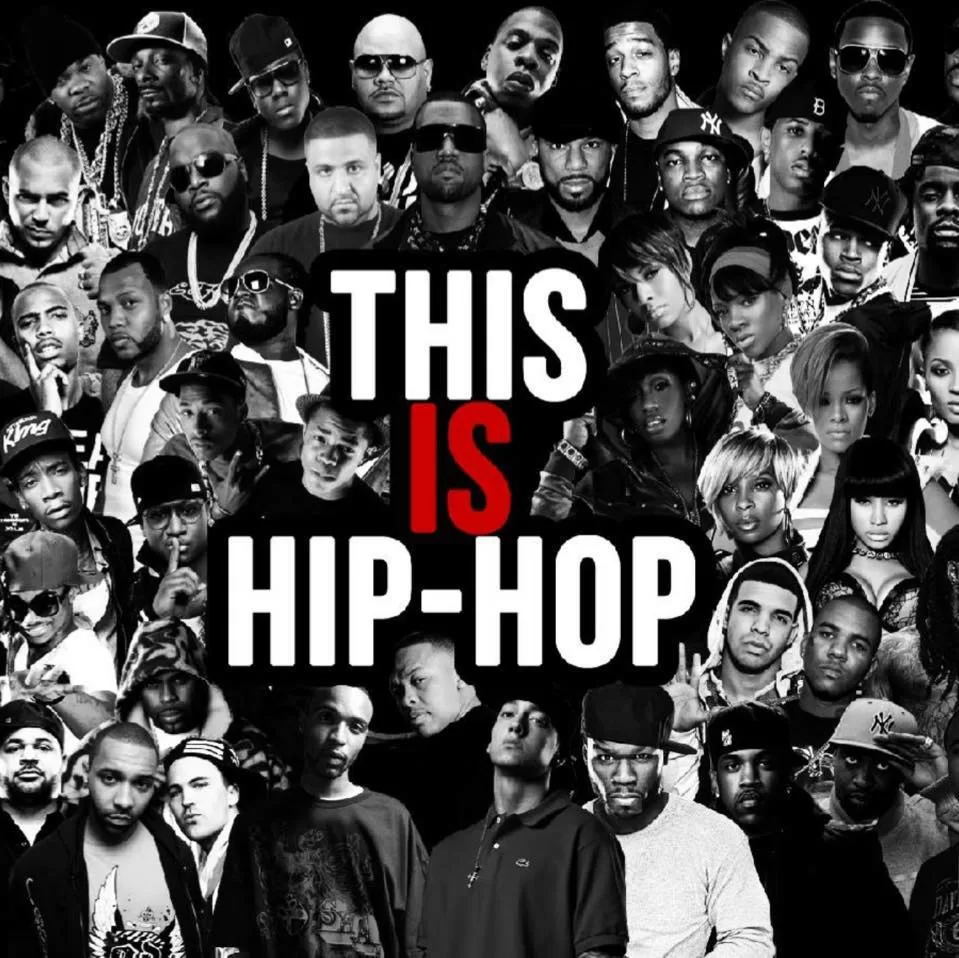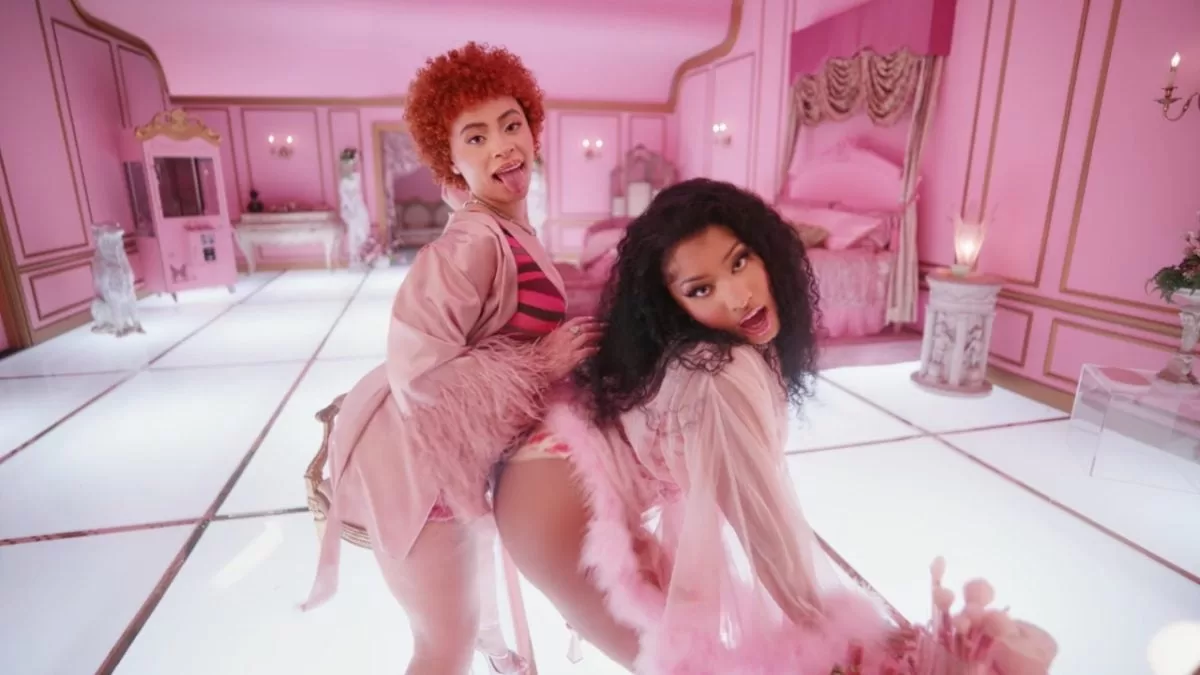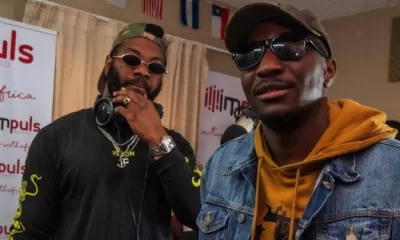Editorial
Rhymes of Resistance: Unveiling German Hip Hop Impact on Society

In the vibrant world of German hip hop, the genre’s artists have transcended the boundaries of music to become powerful voices for political and social commentary. Through their music and music videos, they tackle pressing issues such as racism, social inequality, and political disillusionment, all while employing a unique blend of humor and satire to engage and enlighten their audiences. This article takes a closer look at the fascinating realm of political and social commentary in German hip-hop, unmasking the beats with a side of satire.
Hip Hop has always been a vehicle for social commentary and a platform for marginalized voices to be heard. In Germany, the genre has thrived with artists utilizing their music to confront societal issues head-on. One of the defining features of German hip-hop is its ability to address serious subjects through clever wordplay, irony, and sarcasm. Artists have mastered the art of delivering their messages in an entertaining and thought-provoking manner. By infusing their lyrics and visuals with satire, they captivate listeners, challenge societal norms, and ignite conversations that push for positive change.
Samy Deluxe is a German rapper of Afro-German descent. He is known for his outspoken lyrics about racism and discrimination. His song “Schwarz zu sein in Deutschland” (Being Black in Germany) is a powerful indictment of racism in Germany.
Here is some feedback from listeners of “Schwarz zu sein in Deutschland“:
“This song is so powerful and important. It speaks to the experiences of so many black people in Germany.”
“Samy Deluxe is a true hero. He is using his platform to speak out against racism and injustice, and he is making a real difference.”
Azize is a German rapper of Turkish descent. She is known for her lyrics about the experiences of Turkish women in Germany. Her song “Bosphorus Bridge” is a powerful song about the challenges of being a Turkish woman in Germany.
Here is some feedback from listeners of “Bosphorus Bridge“:
“This song is so moving and relatable. It speaks to the experiences of so many Turkish women in Germany.”
“Azize is a powerful voice for Turkish women. She is using her music to raise awareness of the challenges that they face, and she is empowering them to speak out.”
OG Keemo is a German rapper who is known for his lyrics about mental health and addiction. He is also outspoken about racism and injustice. His song “216” is a powerful song about the experiences of black people in Germany.
Here is some feedback from listeners of “216“:
“This song is so raw and honest. It speaks to the experiences of so many black people in Germany who are struggling with mental health and addiction.”
“OG Keemo is a real talent. He is using his music to raise awareness of the challenges that black people face, and he is giving a voice to those who are often silenced.”
The music of Samy Deluxe, Azize, and OG Keemo is an important voice in the fight against racism and injustice. It gives a platform to those who are often silenced and it raises awareness of the challenges that they face. Their music is also empowering to those who are struggling with racism and injustice. It gives them a sense of community and it shows them that they are not alone.
The influential duo of Kollegah and Farid Bang have also made their mark on the political and social commentary scene in German hip hop. In their song “Jung, Brutal, Gutaussehend,” they employ biting satire to criticize societal double standards, drawing attention to issues such as gender inequality and hypocrisy. Through clever wordplay and provocative imagery, they hold up a mirror to society, forcing listeners to confront uncomfortable truths. Kollegah and Farid Bang’s ability to infuse their music with social critique and satire has earned them both acclaim and controversy, sparking important discussions about societal values and norms.
Another artist who has garnered attention for his socially conscious lyrics is Marteria. In his song “Kids (2 Finger an den Kopf),” he addresses the challenges faced by the younger generation, touching upon issues such as the pressure to conform, societal expectations, and the pursuit of individuality. Marteria’s introspective lyrics resonate deeply with listeners, inviting them to introspect and confront their own realities. By blending personal narratives with social commentary, Marteria sheds light on the struggles faced by youth in contemporary society.
Casper, known for his introspective and poetic style, also uses his music to delve into personal struggles and broader societal issues. In his song “So Perfekt,” he candidly reflects on the challenges of modern society, mental health, and the pressure to fit
Casper‘s emotionally charged lyrics and poignant storytelling resonate deeply with listeners, inviting them to confront the complexities of their own lives. Through his introspective approach, Casper humanizes the societal issues he addresses, creating a profound connection with his audience.
While these artists are just a glimpse into the world of German hip-hop‘s political and social commentary, their impact is indicative of a larger movement within the genre. Through their music and music videos, they challenge systemic issues, expose societal hypocrisy, and empower marginalized communities. German hip-hop’s unique blend of humor, satire, and social critique has not only sparked dialogue but also influenced the broader societal conversation. By raising awareness and provoking discussions, artists have become catalysts for change. They inspire listeners to question the status quo, advocate for social justice, and actively participate in shaping a more inclusive society.
Moreover, German hip-hop’s ability to intertwine entertainment and social commentary serves as a testament to the genre’s power and relevance. It demonstrates that engaging with serious issues doesn’t have to be devoid of entertainment value. By using humor and satire as tools, artists captivate audiences, fostering a deeper understanding of complex subjects and encouraging active engagement.
In a society where politics and social issues can often be divisive, German hip-hop offers a refreshing and unifying perspective. It highlights the experiences of marginalized communities, sheds light on systemic inequalities, and empowers individuals to challenge the status quo. Through their music and music videos, artists unmask the beats with a side of satire, encouraging listeners to reflect, challenge, and actively participate in shaping a more equitable and inclusive society.
German hip-hop’s political and social commentary serves as a powerful reminder of the genre’s ability to provoke change and challenge societal norms. As the artists continue to push boundaries and tackle pressing issues, their voices become catalysts for positive transformation. The impact of their music reaches beyond entertainment, inspiring listeners to question, reflect, and strive for a more just and inclusive society.
In Germany’s hip-hop music videos, the outfits chosen by artists reflect their connection to tradition and culture. Fashion plays a vital role in conveying messages of identity and pride. Artists embrace a mix of streetwear, drawing inspiration from urban styles that have shaped their music. This aesthetic pays homage to the rebellious roots of hip-hop. However, what sets German hip-hop fashion apart is the infusion of traditional elements. Artists intentionally incorporate traditional German patterns, lederhosen-inspired shorts, or references to local craftsmanship. This fusion of old and new challenges stereotypes and asserts diverse identities. Fashion choices also promote solidarity and community. Artists wear clothing with symbols of unity, resistance, and empowerment. They may display political slogans, social justice symbols, or use colors associated with equality movements. The outfits in German hip-hop music videos become a powerful tool for cultural expression and social commentary. They address pressing issues, confront societal norms, and reclaim identities. Fashion is not a superficial concern but a deliberate act of cultural preservation and identity assertion. Artists visually communicate their values, traditions, and aspirations to a global audience. The picking of outfits adds another layer of depth and meaning to their music and artistic expression. German hip-hop fashion celebrates heritage while challenging norms, making it an integral part of the genre’s artistic tapestry.
List of Top German Hip Hop songs
- “Die da?!” Die Fantastischen Vier (Fanta 4)
- “Was du Liebe nennst” by Bausa
- “Ohne Mein Team” by Bonez MC & RAF Camora feat. MAXWELL
- “Ich find‘ dich scheiße” by Tic Tac Toe
- “Du bist Boss” by Kollegah
- “So wie du bist” by MoTrip feat. Lary
- “Au revoir” by Mark Forster feat. Sido
- “Du liebst mich nicht” by Sabrina Setlur
- “Hamma” by Culcha Candela
- “Traum” by Cro
Top German Hip-Hop Artistes
1. Cro
-Easy
-Traum
-Bye Bye
2. Bonez MC
-500 PS
-Palmen aus Plastik
-Mein Block
3. Capital Bra
-Chabos wissen wer der Babo ist
-Ohne mein Team
-Diamant
4. Sido
-Astronaut
-Mein Block
-Arschficksong
5. Raf Camora
-Affe
-Palmen aus Plastik
-Keiner kommt klar
6. Apache 207
-Roller
-Freier Fall
-Achtung
7. GZUZ
-Millionär
-Was du Liebe nennst
-Sonny Black
8. Bushido
-Bis zum Tod
-Sonnenbank Flavour
-Electro Ghetto
9. Kontra K
-Aufgeben war nie eine Option
-Mein Weg
-König
10. Bausa
-Was du Liebe nennst
-200 Bars
-Millionär
In conclusion, the political and social commentary in German hip-hop stands as a powerful testament to the genre’s influence and significance. Artists like Advanced Chemistry, Samy Deluxe, OG KEEMO, Kollegah and Farid Bang, Marteria, and Casper use humor and satire to address pressing issues, spark dialogue, and inspire change. By unmasking the beats with a side of satire, German hip-hop invites listeners to reflect, challenge, and actively participate in shaping a more equitable and inclusive society. As the genre continues to evolve, its political and social commentary remains a vital force in the German music landscape, providing a platform for unheard voices and a catalyst for positive transformation.







































